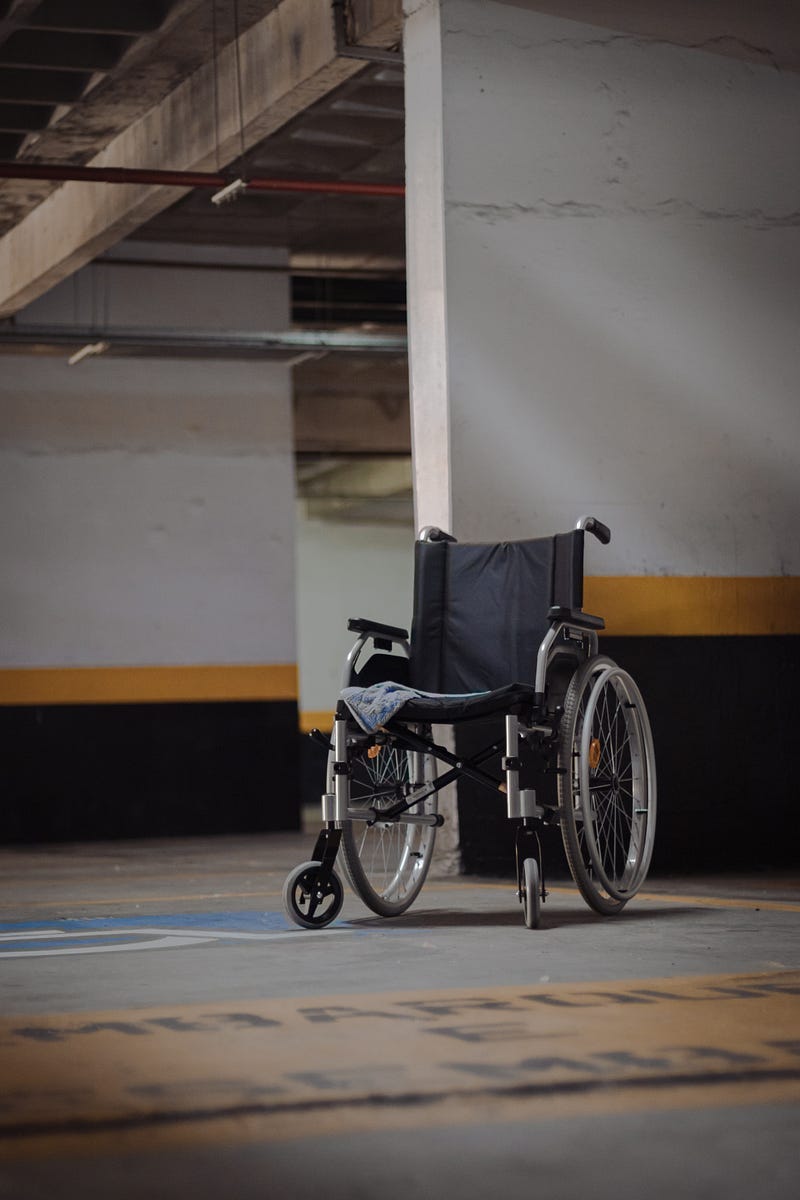The Courage of a Young Veteran from Ukraine War Made Me Cry Yesterday
With his daughter perched on his wheelchair, they rode along with smiles on their faces, living life

A young woman was crossing the street with one child in a stroller and another lagging behind. She called for her daughter to hurry up, but she was in another world.
Seeing the distracted little girl, I took her hand and escorted her to the sidewalk. The mom smiled and thanked me in German, then immediately switched to Russian to speak to her daughter, saying, “The uncle was very nice. Say, thank you.”
We started to talk in Russia. They were going my way. This family lived in a hotel that was turned into a home for refugees right near the central train station in Munich. They came to Germany over a year ago. Recently, her husband joined them because he can no longer fight in the war, she told me.
“We’re going up here to the playground.” I knew that playground because when my family and I first left Russia, our hotel was near it, and my son spent a week playing there every day. The little girl had recently turned four and now attended a local kindergarten. The conversation and the overall mood of it, characterized by a sense of being lost but at the same time grateful not to be there, where the Russian missiles so randomly end lives, was so familiar to what I hear in Portugal. I felt like I knew her. I introduced myself.
The little girl still hadn’t let go of my hand, so I walked them to the park. My friends could wait. She excitedly asked if “Uncle” would go and play with us. I wanted to because I knew how important it was for these children — like my son — who were suddenly removed from the worlds they knew. It is necessary for them to perceive strangers as potential “playmates.” These kids could sense that someone, in this case, Russia, was hurting someone else, so all “big people” needed to be friendly, puppy-like, and always willing to play.
As we approached the park, I was beginning to figure out how to part with this wonderful little family without hurting these little kids. Crossing onto a sidewalk that connects directly with the park, I saw a small dot moving closer and closer to us at a relatively rapid speed. The little girl squealed and said, “That’s my Papa!”
I watched a man in a wheelchair race up to us, and the little girl jumped on the portion of the lap that he still had. His arms were thick like branches, and he cruised off toward the swings with his daughter commanding her father in which direction to go. After a few minutes, after having dropped her off, he came back and reached a hand up to me.
We shook hands, and he introduced himself,” Ilya.”
We chatted briefly about the war — he was injured when his tank was hit last December. He lost his legs from about mid-thigh down. He wanted to go back and fight, but they wouldn’t take him. He was told he had done enough and was sent to join his wife and kids. We both loved the same beer.
He told me it was a pleasure meeting and tore off to play with his daughter. I marveled at how he seemed unfazed by his plight. My hatred for Putin and for Russians who support him became white hot, and I wanted to scream — or at least have it out with anyone supporting Putin. An opportunity I would get the next day when one of the servers at Oktoberfest said cheerily how he supported Russia — beer and politics don’t mix.
As I walked away, I looked back and figured he was probably around 23 or 24. As angry as he was that they had sent him away from the front, he could see how happy he was to be in a park in Munich with his wife holding his youngest and his 4-year-old daughter riding around on his lap, commanding him to go left, then right, and faster.
The tears stream from my eyes.


